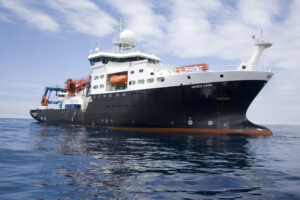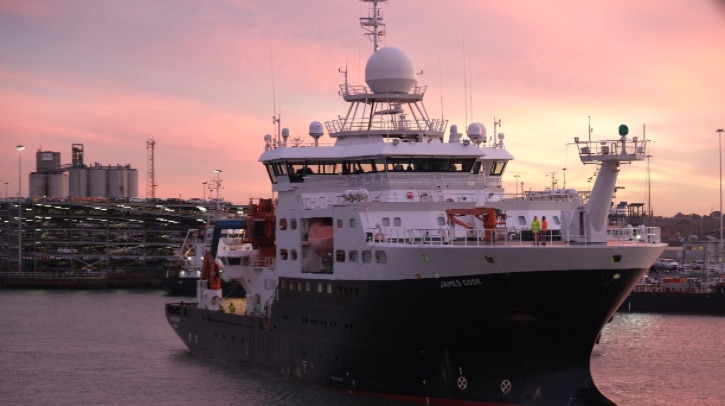The UK’s National Oceanography Centre (NOC) has begun trialling the use of hydrotreated vegetable oil (HVO) to fuel the Royal Research Ships (RRS) James Cook and Discovery.
Hydrotreated vegetable oil marine fuel
During the trial, HVO is replacing the low-sulfur marine gas oil (LSMGO) NOC normally uses. As HVO is one of the more stable biofuels, it’s suitable for the different conditions that NOC vessels operate in, from high-temperature regions to the Arctic. However, the organization highlighted that there are some remaining challenges around its use, such as cost and availability, especially in the remote places NOC operates.
The NOC points out that HVO can be used as a “drop-in” replacement in marine engines and because it’s made from already used products and non-food crops, its lifecycle CO2 emissions are much lower than fossil fuel.
National Oceanography Centre’s sustainable research

The trial is funded by the UK’s Natural Environment Research Council (NERC), which owns the two vessels, in support of a UK Research and Innovation (UKRI) goal to achieve net-zero emission operations by 2040.
The HVO trial is part of wider emissions reduction work at NOC. For the vessels, this includes assessing the use of batteries on board, to reduce the use of the engines during scientific operations, and a focus on marine operations planning, to reduce transit time and more efficient routing based on weather.
Kevin Williams, head of research ships engineering at NOC, said, “As a research organization, NOC is focused on understanding and protecting our ocean. Reducing our own environmental footprint is a key part of that and the carbon emissions from our vessels is a major part of that.”
In related news, Cosco Shipping Heavy Industry and Cosco Shipping Container Lines recently signed a contract in Shanghai to construct 12 14,000 TEU container ships with dual-fuel methanol propulsion. Click here to read the full story.



